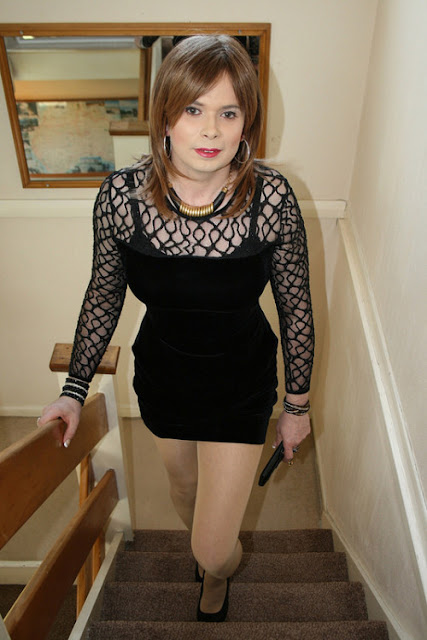
The desire for a "wife" can evoke images of June Cleaver, perfectly coiffed, serving dinner in heels. But in today's world, the concept of what a spouse desires in their partner is far more nuanced. What does it mean when a husband expresses a yearning for a more traditional wife? Is it a longing for simpler times, a desire for specific domestic arrangements, or something more complex?
This isn't about a return to the 1950s. Instead, it's about understanding the motivations behind this desire. Perhaps it reflects a need for greater support at home, a yearning for shared responsibility in specific areas, or even a desire for a deeper connection rooted in traditional values. It's crucial to dissect these needs and communicate openly about them.
Historically, societal expectations placed women primarily in the domestic sphere. The role of "wife" was often defined by homemaking, childcare, and providing emotional support. While these aspects can still be valued today, the modern wife often balances multiple roles, including professional pursuits and personal aspirations. Therefore, the conversation surrounding what a husband desires in a wife needs to be framed within the context of contemporary life.
A crucial element in navigating this desire is open communication. The husband needs to articulate his specific needs and desires, avoiding generalizations. Does he envision a wife who manages the household entirely? Or is it more about shared responsibilities and mutual support in specific areas? The wife, in turn, needs to express her own aspirations and boundaries. This dialogue is the foundation of a healthy and mutually respectful partnership.
Understanding the underlying emotions behind these desires is also important. Is it about feeling overwhelmed and needing practical help? Is it a desire for more intimacy and connection? Or perhaps it’s tied to cultural or familial expectations. Unpacking these emotions can lead to a more productive and empathetic conversation, fostering understanding and compromise.
The importance of this conversation stems from the potential for misunderstanding and resentment. Unmet expectations, if left unaddressed, can erode the foundation of a relationship. Open and honest dialogue, coupled with a willingness to compromise, is essential for navigating these potentially complex dynamics.
A successful approach involves identifying shared values and priorities. Perhaps both partners value a well-maintained home, but disagree on who is primarily responsible. Finding a compromise that respects both perspectives, perhaps through shared chores or outsourced help, can create a more harmonious dynamic.
Effective communication is key. Instead of criticizing or making demands, focus on expressing needs and desires using "I" statements. For example, "I feel overwhelmed with household tasks and would appreciate more support" is more constructive than "You never help around the house."
Advantages and Disadvantages of Traditional Role Expectations
| Advantages | Disadvantages |
|---|---|
| Clearly defined roles can create structure and predictability. | Can limit individual growth and potential. |
| Potential for a strong division of labor and shared responsibilities. | Can lead to resentment and inequality if one partner feels overburdened. |
One challenge might be reconciling traditional expectations with modern realities. A solution involves adapting traditional roles to fit contemporary lifestyles. For instance, both partners might contribute to household chores, but divide tasks based on individual strengths and schedules.
Frequently Asked Questions:
1. What does it mean when a husband wants a "traditional wife"? It can vary, but often involves a desire for support at home, shared responsibility, or a connection rooted in traditional values.
2. Is this a realistic expectation in today's society? It can be, but requires open communication and a willingness to adapt traditional roles to fit modern life.
3. How can couples navigate these expectations? Through open communication, compromise, and a focus on mutual respect and understanding.
4. What if one partner's vision of a "traditional wife" conflicts with the other's aspirations? Honest dialogue and a willingness to find common ground are crucial.
5. Can traditional roles be adapted to modern life? Yes, by focusing on shared responsibilities and adapting tasks based on individual strengths and schedules.
6. What are the potential pitfalls of unaddressed expectations? Resentment, conflict, and a breakdown in communication.
7. How can couples ensure a balanced and equitable partnership while honoring some traditional values? Through open dialogue, flexible roles, and mutual respect.
8. What resources are available to couples navigating these discussions? Relationship counseling, books on communication, and online forums can be helpful.A tip for navigating this conversation is to focus on shared values and goals, rather than getting stuck on specific roles or labels. What ultimately matters is creating a partnership that feels supportive, equitable, and fulfilling for both individuals.
In conclusion, the desire for a "wife" isn't simply about a return to the past. It's a complex issue reflecting a desire for connection, support, and shared responsibility. Navigating these expectations requires open communication, empathy, and a willingness to adapt traditional roles to the realities of modern life. By prioritizing mutual respect, understanding, and a willingness to compromise, couples can build a strong and fulfilling partnership that honors both individual aspirations and shared values. This journey requires ongoing communication, adaptation, and a commitment to nurturing a relationship that thrives on mutual support and understanding. Ultimately, the goal is to create a partnership where both individuals feel valued, respected, and fulfilled, regardless of how traditional or modern their roles may be.
Decoding sherwin williams cream colors the ultimate guide
Ea sports fc price breakdown
Navigating top medicare supplement plans in north carolina













